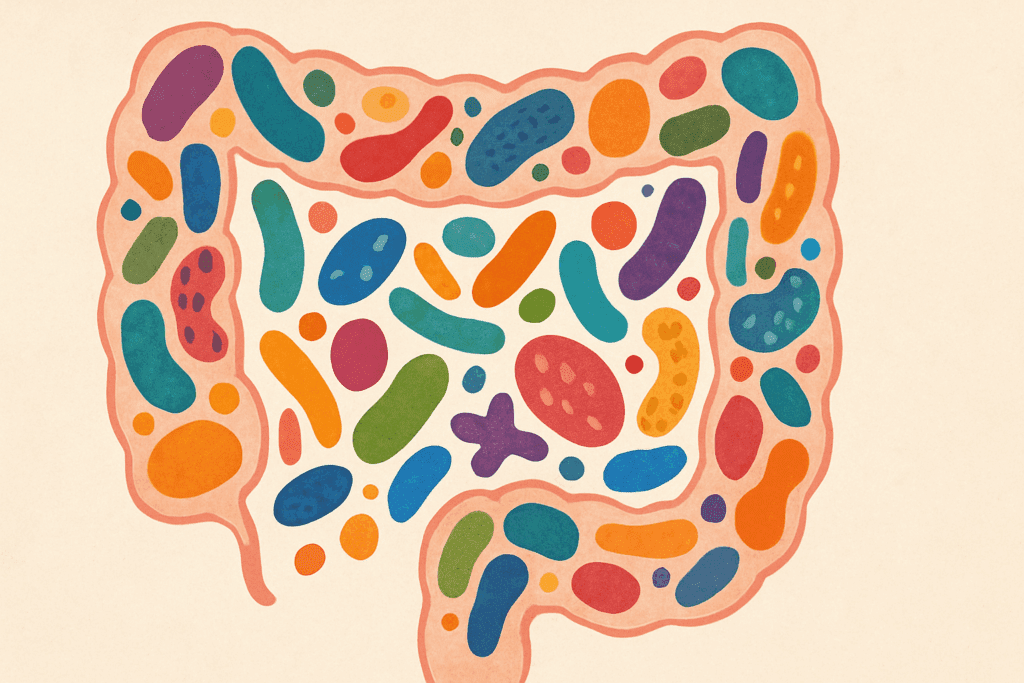Understanding the Foundations of Low-Carb Diets
Low-carbohydrate diets have become a cornerstone of modern nutritional strategies aimed at promoting weight loss and improving metabolic health. Among the most prominent are the ketogenic (keto) and carnivore diets—two eating patterns that drastically reduce carbohydrate intake, yet diverge significantly in their philosophy, composition, and potential health implications. Understanding the key differences between the carnivore diet vs keto can help individuals make informed choices that align with their health goals, lifestyle preferences, and long-term wellness strategies.
While both diets share a low-carb foundation, the keto diet includes a broader spectrum of foods, allowing for non-starchy vegetables, nuts, seeds, and dairy. The carnivore diet, on the other hand, restricts intake exclusively to animal-based foods. This fundamental difference shapes not only how these diets function metabolically, but also how they affect nutritional balance, gut health, and sustainability.
You may also like: Is the Keto Diet Safe or Dangerous? What Experts Say About the Risks, Benefits, and Basics of the Ketogenic Diet

What Is the Ketogenic Diet? A Look at Nutrient Composition and Metabolic Effects
The ketogenic diet is a high-fat, moderate-protein, and very low-carbohydrate dietary plan designed to shift the body into a metabolic state known as ketosis. In ketosis, the liver breaks down fats into ketones, which the body uses as an alternative fuel source to glucose. Carbohydrate intake is typically restricted to 20–50 grams per day, ensuring that insulin levels remain low and fat oxidation is prioritized.
Supporters of the keto diet point to its strong clinical backing. Numerous studies have demonstrated its effectiveness in supporting weight loss, improving insulin sensitivity, reducing triglyceride levels, and increasing HDL (“good”) cholesterol. Importantly, these benefits often go beyond simple calorie restriction; the state of ketosis itself appears to suppress appetite, stabilize blood sugar levels, and enhance satiety, making it easier for individuals to maintain a caloric deficit over time.
Keto allows for variety through the inclusion of plant-based fats and non-starchy vegetables, contributing to micronutrient adequacy and fiber intake. This flexibility makes the ketogenic diet more sustainable and customizable to individual preferences and health conditions.

What Is the Carnivore Diet? Exploring Its Strict Animal-Based Approach
In stark contrast to keto, the carnivore diet is a zero-carb approach that emphasizes exclusive consumption of animal-based products such as meat, fish, eggs, and animal fats. While some followers include dairy, others choose a stricter path, avoiding all plant-derived foods, including herbs and spices. The carnivore diet has gained popularity due to anecdotal reports of dramatic health improvements, particularly among those with autoimmune diseases, digestive disorders, or chronic inflammation.
Proponents argue that the elimination of plant foods reduces exposure to potentially inflammatory compounds such as oxalates, lectins, and phytates—natural plant defenses that can impair nutrient absorption or trigger immune responses in sensitive individuals. While the scientific research supporting these claims remains limited, early case reports suggest that the carnivore diet may be beneficial for a select population.
However, concerns about the diet’s restrictive nature persist. Critics point to potential nutrient deficiencies, particularly in vitamins C, E, and K, as well as the absence of plant-based antioxidants and fiber. Despite the high nutrient density of organ meats, the lack of dietary diversity raises questions about long-term safety and sustainability.

Gut Health and Microbiome: How Fiber Influences Long-Term Wellness
One of the most significant points of divergence in the carnivore diet vs keto discussion involves the impact on the gut microbiome. Fiber—entirely absent in carnivore diets—plays a pivotal role in feeding beneficial gut bacteria. A healthy and diverse microbiome supports immune function, modulates inflammation, and protects against metabolic disorders. The ketogenic diet, while low in carbs, still permits fiber-rich foods such as leafy greens, nuts, and seeds, helping to preserve microbial diversity.
Emerging research highlights that disruptions in gut flora may contribute to chronic diseases, including obesity, type 2 diabetes, and inflammatory bowel disease. While carnivore advocates argue that gut health may improve by eliminating irritants found in plants, the long-term effects of fiber exclusion remain unclear. Individuals following a carnivore diet may initially experience digestive relief but could face microbial depletion or reduced short-chain fatty acid production over time.
Thus, the keto diet may offer a better balance between carbohydrate restriction and microbiome preservation, making it a potentially more sustainable approach for supporting long-term digestive health.

Weight Loss Potential: Comparing Fat Loss on Keto vs Carnivore
When it comes to weight loss, both diets can be highly effective—particularly in the initial stages. The state of ketosis, common to both keto and carnivore diets, promotes fat burning by shifting energy metabolism away from glucose and toward stored fat. As a result, many individuals experience significant fat loss, reduced waist circumference, and improvements in body composition.
The appetite-suppressing effects of ketosis, coupled with high protein and fat intake, contribute to spontaneous reductions in caloric intake without intentional restriction. However, sustainability and psychological factors can influence long-term adherence. The keto diet’s allowance for food variety may enhance compliance, while the carnivore diet’s rigid structure may lead to dietary fatigue or social isolation.
Furthermore, research consistently shows that dietary adherence is one of the most important predictors of long-term weight loss success. While the carnivore diet may deliver rapid short-term results, the keto diet’s flexibility could provide a more realistic path for those seeking sustained weight management.

Metabolic Health: Blood Sugar, Insulin, and Inflammation Markers
Both the carnivore and ketogenic diets have demonstrated beneficial effects on metabolic markers. Improved insulin sensitivity, lower fasting glucose, and reduced systemic inflammation are commonly reported outcomes, especially in individuals with metabolic syndrome or type 2 diabetes. In the case of keto, these benefits are well-documented in peer-reviewed clinical trials, which provide strong support for its use in managing blood sugar and improving lipid profiles.
The carnivore diet, though less studied, has shown promise in anecdotal and observational reports. Some followers report normalized blood sugar levels, reductions in C-reactive protein (CRP), and improved markers of inflammation. However, more rigorous studies are needed to validate these findings and establish the diet’s safety and effectiveness in diverse populations.
In comparing the carnivore diet vs keto, the latter offers a more established framework supported by decades of metabolic research. While the carnivore diet shows therapeutic potential, it should be approached cautiously and ideally under medical supervision.
Cardiovascular Considerations: Cholesterol and Heart Health
Saturated fat intake is a common concern with both diets, especially the carnivore diet, which emphasizes red meat and animal fats. Historically, high intake of saturated fats has been associated with increased cardiovascular risk, but more recent research suggests that the relationship is more nuanced. Factors such as LDL particle size, HDL cholesterol levels, and systemic inflammation may be more relevant predictors of heart disease.
The ketogenic diet has demonstrated favorable effects on heart health markers, including reduced triglycerides and increased HDL cholesterol. Some individuals may experience an increase in LDL cholesterol, but often with a shift toward larger, less atherogenic particles. In contrast, the effects of the carnivore diet on cholesterol profiles are still not well understood. Initial data suggest a similar lipid response, but long-term cardiovascular outcomes remain uncertain.
For individuals with a personal or family history of heart disease, careful monitoring is essential when adopting either diet. Collaboration with healthcare providers and regular blood lipid assessments can help ensure that dietary changes support, rather than undermine, cardiovascular wellness.

Mental Clarity, Mood, and Brain Health: Cognitive Benefits of Low-Carb Diets
Another intriguing area of comparison in the keto vs carnivore conversation is the impact on mental performance and mood. The ketogenic diet was originally developed for epilepsy treatment and continues to be used therapeutically in neurological disorders. Ketones offer a stable fuel source for the brain, which may translate to improved mental clarity, reduced brain fog, and enhanced cognitive function.
The carnivore diet, though not studied extensively in this context, has garnered praise from followers for its perceived mental health benefits. Some report improved mood stability, reduced anxiety, and enhanced focus—possibly due to the elimination of food allergens, blood sugar swings, or inflammatory plant compounds. However, the lack of polyphenols and omega-3-rich plant oils may limit the carnivore diet’s ability to fully support cognitive health over time.
While more data are needed, the keto diet appears to have a stronger evidence base for neurological benefits, making it a potentially better option for those prioritizing brain health and mental performance.
Athletic Performance and Physical Recovery: Navigating Carbohydrate Restriction in Active Lifestyles
Low-carb diets have gained traction among athletes, particularly in endurance sports where fat adaptation can offer energy efficiency and reduced dependency on carbohydrate refueling. Keto-adapted athletes often report sustained energy levels, improved recovery, and lower inflammation, though performance in high-intensity, anaerobic sports may be compromised due to limited glycogen availability.
Carnivore diet practitioners also cite reduced soreness and improved recovery, potentially due to the anti-inflammatory effects of eliminating processed foods and carbohydrates. However, the complete exclusion of plant-based micronutrients and carbohydrates may hinder peak performance in strength training or sprinting disciplines.
Ultimately, whether following the carnivore or keto diet, athletes must closely monitor performance metrics, recovery time, and nutrient status. Strategic carbohydrate reintroduction or cyclical approaches may be necessary for optimizing athletic outcomes.
Practical Considerations: Adherence, Social Life, and Long-Term Feasibility
Sustainability is a vital factor when choosing a dietary plan. While the carnivore diet’s simplicity can be appealing to those who dislike meal planning or struggle with cravings, its restrictive nature can make it difficult to maintain over time. Social events, dining out, and culinary monotony often pose significant hurdles.
The ketogenic diet, by contrast, allows for a wider variety of meals and can be adapted to suit different preferences and cultural cuisines. This makes it more feasible for long-term use, especially for individuals who value flexibility and balance in their dietary approach.
The decision between the carnivore diet vs keto should consider lifestyle compatibility, meal accessibility, personal preferences, and the psychological impact of long-term dietary restrictions.
Environmental and Ethical Dimensions of Low-Carb Diets
Beyond personal health, ethical and environmental considerations are increasingly influencing dietary decisions. The carnivore diet, which relies exclusively on animal agriculture, has a significantly higher environmental footprint in terms of greenhouse gas emissions, land use, and resource consumption. In contrast, the keto diet allows for more environmentally sustainable options by incorporating plant-based fats and low-carb vegetables.
For individuals concerned with ecological impact or animal welfare, the flexibility of keto may provide a more conscientious approach while still delivering the metabolic benefits of a low-carb framework.
Frequently Asked Questions: Keto vs Carnivore
1. Can switching between keto and carnivore improve health outcomes more than sticking to one diet?
For some individuals, alternating between the keto and carnivore diets can provide a balanced approach that leverages the benefits of both without the long-term drawbacks. A cyclical strategy allows for periods of strict elimination using the carnivore diet to reduce inflammation, followed by a reintroduction of plant-based nutrients on keto to support gut microbiota and vitamin diversity. This approach is especially helpful for those dealing with food sensitivities, as carnivore can act as a temporary elimination protocol. Transitioning back to keto provides fiber, polyphenols, and other plant compounds beneficial for long-term health. Ultimately, the debate of carnivore diet vs keto does not need to be a binary choice; cycling intelligently between them may serve both metabolic and nutritional needs.
2. How do social and psychological factors influence adherence to keto vs carnivore?
Social dynamics and mental well-being play a significant role in diet adherence. The carnivore diet, due to its restrictive nature, may lead to feelings of isolation, especially in social settings where plant-based side dishes or desserts are common. Conversely, keto allows for greater flexibility, making it easier to integrate into cultural, family, and holiday meals. Psychological fatigue can also be more pronounced on carnivore, where the lack of variety may lead to palate fatigue and decreased enjoyment. In the broader comparison of keto vs carnivore, those who value social connection and food diversity may find keto more sustainable over time.
3. Are there unique nutrient deficiencies to watch for on carnivore that aren’t typically a concern on keto?
Yes, the carnivore diet presents several unique nutritional concerns not commonly associated with keto. Vitamin C is perhaps the most notable, as it is predominantly found in fruits and vegetables and can be challenging to obtain solely from animal products. Over time, this deficiency could lead to symptoms resembling scurvy in extreme cases. Other potential deficiencies include magnesium, folate, and certain plant-based antioxidants, which are not adequately replaced by animal-only foods. When evaluating the carnivore diet vs keto from a micronutrient standpoint, keto typically supports broader nutritional adequacy due to its inclusion of plant-based foods.
4. What are the long-term hormonal effects of keto vs carnivore, particularly in women?
Long-term adherence to either keto or carnivore can influence hormonal health, especially in women. Research suggests that severe carbohydrate restriction can impact reproductive hormones, potentially leading to disrupted menstrual cycles or lower thyroid function in some individuals. While keto allows some flexibility that may mitigate these effects, the carnivore diet’s extreme carbohydrate exclusion might amplify hormonal imbalances over time. Women who experience fatigue, hair loss, or irregular cycles on carnivore may benefit from transitioning to keto or incorporating targeted carb refeeds. Thus, in assessing the carnivore diet vs keto, hormonal resilience and gender-specific needs are key factors that merit careful consideration.
5. Can children or adolescents safely follow keto or carnivore diets for medical reasons?
While therapeutic keto diets are sometimes prescribed for children with epilepsy, these protocols are highly specialized and closely monitored by medical professionals. Applying a strict carnivore diet to children or adolescents is much more controversial due to developmental needs and the importance of diverse nutrients for growth. In the keto vs carnivore debate for pediatric care, keto has a clinical precedent and established safety data when managed properly, whereas carnivore lacks formal studies and is not widely endorsed in youth populations. Parents considering low-carb approaches should always consult pediatricians or dietitians to avoid stunting development or causing nutritional deficiencies.
6. What emerging research areas might change how we view the keto vs carnivore debate in the future?
Future research may focus on precision nutrition and genetic polymorphisms that influence individual responses to low-carb diets. For example, certain gene variants may determine how efficiently someone enters ketosis or metabolizes saturated fat, which could tip the balance in the carnivore diet vs keto conversation. Additionally, advances in microbiome science may reveal long-term consequences of fiber restriction on the carnivore diet that aren’t yet fully understood. Epigenetic studies might also show how each diet impacts inflammation, gene expression, and disease risk over decades. As data evolves, personalized protocols could replace rigid diet labels, making the future of keto vs carnivore far more individualized and evidence-based.
7. How do food sensitivities and autoimmune conditions influence the keto vs carnivore decision?
Individuals with autoimmune diseases or food sensitivities often experiment with elimination diets to identify triggers. The carnivore diet, due to its exclusion of all plant matter, serves as an extreme elimination tool that may offer rapid symptom relief. However, it’s not necessarily sustainable or advisable without reintroduction phases. In contrast, the keto diet can be modified to eliminate specific irritants while still offering variety and fiber. When comparing carnivore diet vs keto in this context, carnivore may offer short-term clarity, but keto often provides a longer-term solution for managing symptoms while meeting nutritional needs.
8. Can the carnivore diet support athletic performance as effectively as keto?
Athletes on the carnivore diet may benefit from reduced inflammation and quicker muscle recovery, but performance in high-intensity sports may suffer due to the complete lack of dietary carbohydrates. Keto-adapted athletes, especially those in endurance disciplines, have shown success in fat utilization and sustained energy. The keto diet’s allowance for strategic carbohydrate use offers an advantage in sports that demand glycogen. In the ongoing debate of keto vs carnivore for athletic performance, keto offers more versatility and can be fine-tuned to meet training cycles and competition demands. Carnivore, while effective in specific cases, lacks the flexibility needed for high-output activities.
9. How can digestive health be managed long-term on a carnivore diet without fiber?
Digestive adaptation on the carnivore diet varies widely. While some people experience relief from bloating or irritable bowel symptoms, others develop constipation or sluggish digestion due to the absence of fiber. Strategies such as increasing fat intake, including collagen-rich cuts, and staying well-hydrated can help improve stool consistency. However, long-term exclusion of fermentable fibers may lead to decreased microbial diversity. Comparing the carnivore diet vs keto, the latter supports digestive resilience more effectively due to its inclusion of non-starchy vegetables and prebiotic compounds.
10. What ethical or environmental trade-offs should be considered in choosing keto vs carnivore?
Environmental sustainability is becoming a central theme in dietary decision-making. The carnivore diet, with its dependence on animal agriculture, typically has a higher environmental footprint compared to keto, which allows for plant-based fats and low-carb vegetables. Ethically, concerns around animal welfare may lead some individuals to lean toward a plant-inclusive keto model. However, both diets can be practiced responsibly by sourcing local, grass-fed, or regenerative agriculture products. In weighing the carnivore diet vs keto from an environmental or ethical standpoint, keto generally offers greater flexibility for alignment with sustainable and humane food practices.
Choosing the Right Low-Carb Approach for You: Reflections on Keto vs Carnivore
As we explore the carnivore diet vs keto debate, it becomes clear that each diet offers compelling benefits but also carries distinct limitations. The ketogenic diet boasts an extensive body of scientific research supporting its efficacy in weight loss, metabolic health, and even cognitive enhancement. Its versatility, nutrient richness, and sustainability make it a strong contender for those seeking a balanced, long-term solution.
The carnivore diet, while lacking in long-term research, may serve as a powerful intervention for individuals with autoimmune conditions, digestive disorders, or food sensitivities. Its elimination-based simplicity can offer therapeutic benefits, but the absence of fiber, antioxidants, and plant-derived nutrients necessitates careful monitoring and expert guidance.
Ultimately, success in any dietary endeavor depends on personalization, adaptability, and ongoing education. Whether you choose the structured diversity of keto or the radical simplicity of carnivore, it’s crucial to prioritize whole, nutrient-dense foods, stay informed through credible sources, and collaborate with healthcare professionals to ensure your diet supports—not compromises—your overall well-being.
When considering keto vs carnivore, the question isn’t which is universally better, but which aligns best with your body, your goals, and your vision for sustainable health. By choosing wisely and adjusting as needed, you can unlock the transformative potential of low-carb nutrition to fuel a lifetime of wellness.
Further Reading:
Carnivore Diet vs Keto: Which is Best for You?
Carnivore vs. Keto: 9 Reasons Why Carnivore Is King
Carnivore Diet vs Keto: What are the Differences & Which is Right for You?


